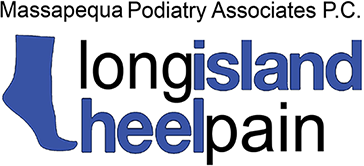Shockwave therapy is an innovative, non-invasive treatment for various foot conditions, but it’s always important to know all you can about a procedure, and we’re happy to answer all your questions.
Most patients describe shockwave therapy—also known as extracorporeal shockwave therapy or ESWT—as more uncomfortable than painful, although the amount of discomfort varies by individual. In general, treatments delivered closer to the bone are more unpleasant. Patients also sometimes experience discomfort and dull pain in the hours and days following shockwave therapy. Tingling, mild pain, and bruising may occur. This is particularly true in sensitive areas, including the Achilles tendon. 
Overall, many people choose shockwave therapy treatment because the pain is temporary and it prevents the need for more invasive options, like surgery. Approximately 90 percent of patients in an FDA study reported decreased pain after ESWT treatment.
What Is Shockwave Therapy?
Shockwave therapy is an evidence-based treatment method that applies high-energy acoustic pressure waves to an injury or damaged tissue. Since the treatment includes the word “shock”, some people assume that electricity is used in the process, but this isn’t the case. The shockwaves are applied from outside of the body (extracorporeal), without any sort of incision. At Massapequa Podiatry Associates in Long Island, we use shockwave therapy to treat various conditions, including plantar fasciitis, Achilles tendinitis, neuromas, and sprains. The goals of shockwave therapy are to reduce pain, remove barriers to recovery, and accelerate the healing process.
Benefits of Shockwave Therapy
ESWT is a form of regenerative medicine, which means that it helps the body to heal itself without requiring the use of medications. The shockwaves that are applied to the injured part of the body:
- Stimulate the cells to make repairs to the damaged area
- Increase blood flow
- Potentially reduce pain from the injury
- Break down calcium buildup
- Are administered during short, outpatient sessions
- Require minimal recovery time
- Rarely cause complications
- Help the body to heal itself faster than it would on its own
Reducing Discomfort From ESWT
There are several steps you can take to reduce discomfort from ESWT in the hours and days following treatment. Here are our recommendations.
Rest
Immediately following the procedure, avoid using the treated area as much as possible. Keep the foot elevated for the rest of the day.
Ice
An ice pack wrapped in a waterproof material to prevent cold burn can help to reduce and prevent discomfort.
Castor Oil
Applying a few drops of castor oil in the morning and evening might lessen inflammation. However, this method shoudn’t be used by pregnant women.
Best Candidates for ESWT
After you meet with a heel pain expert at Massapequa Podiatry Associates, we’ll outline our recommendations for your treatment plan. If ESWT is an option, it may be used in combination with other treatments such as MLS laser therapy, physical therapy, Tenex, and custom orthotics for maximum benefits. The patients most likely to be considered for ESWT include:
- Athletes and other active people who want relief without surgery
- Patients who haven’t found relief from lower-level treatments
- Patients who are likely to have issues recovering from surgery
However, as with other treatments, shockwave therapy isn’t for everyone. To ensure your health, our doctors will want to discuss your medical history and current conditions. Primarily, ESWT isn’t a good option for people with heart conditions, epilepsy, neuropathy, or hypersensitivity in the target area. It’s also advisable that women who are pregnant or think they might be should choose another course of treatment.

